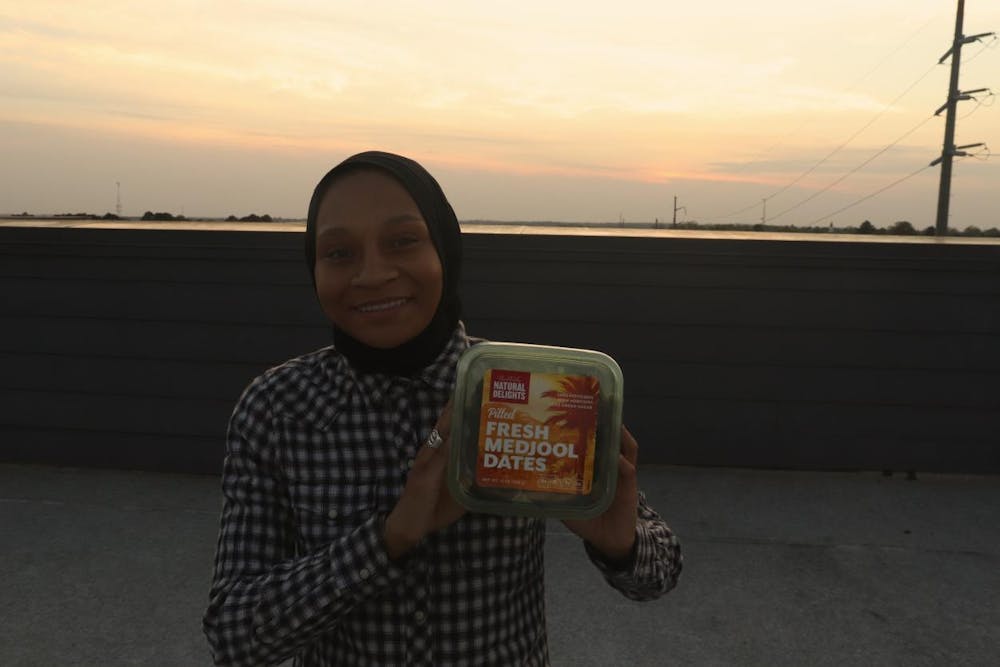As Muslims all over the world prepare for Ramadan, many of the Muslim students and faculty at Mercer are also preparing for the upcoming month.
Ramadan is the ninth month of the Islamic calendar and is observed by Muslims worldwide as a month of fasting, prayer, consideration and community. Muslims around the world observe this tradition by fasting from sunrise to sunset daily throughout the month breaking their fast with palm dates at Iftar dinner. During this month, the first revelation of the Quran, the holy book of Islam, was sent to the Muslim prophet Mohammad.
Fasting during Ramadan is considered the fourth of five Islamic pillars, or duties performed by Muslims. Fasting means abstaining from a variety of things including eating, drinking, smoking and sexual activity. Individuals that are sick, frail, elderly, pregnant or menstruating women are exempt from fasting.
Professor Lody Odeh, an adjunct political science instructor and a Muslim, believes that Ramadan brings the Muslim community together and helps Muslims develop a closer relationship with their families and religion.
“Ramadan is also a month where family and community ties are strengthened with families coming together to break their fast, unlike other times during the year when people often eat separately,” Odeh said. “Indeed, it is a joyful time for families.”
The Muslim tradition says that fasting teaches Muslims patience and strengthens their stamina to endure hardship. It is also intended to help Muslims empathize with those who experience hunger as their daily reality.
Ramadan is an obligation for every Muslim found across the 57 Muslim-majority countries and is a period for increased compassion. With less time spent on preparing meals throughout the day, Muslims spend more time with their religion in an attempt to better understand their relationship with God.
Dr. Eimad Houry is a political science professor, director of the International Affairs Program at Mercer and a Muslim. He also takes steps to understand his faith better during the month while adapting to the circumstances.
“Fasting the month of Ramadan is not easy, but it is a change and an obligation every Muslim welcomes, regardless of how religious they are,” Houry said. “The fast is quite challenging and involves not just refraining from eating or drinking anything from dusk until sunset, but also acting humble, refraining from gossip, exercising more patience and dedicating more time to religious learning and reflection.”
Some Muslim students at Mercer have also taken steps to take the month more seriously in an attempt to get closer to their faith even while taking their full course load.
Mikkiya Caldwell, a junior majoring in history, has the intention to take Ramadan seriously this year by fasting while completing her coursework. Caldwell also plans on clearing her schedule to go to Friday prayer.
“I am looking forward to breaking my fast at the mosque with the other members of the community,” Caldwell said. “I am excited to try new foods from other cultures. Some of my friends plan to break our fasts together at Mercer.”
Caldwell and many other Muslims would like those of different faiths to engage with the rest of the Muslim community during and even after Ramadan. They are often open to having discussions with those of different backgrounds and religions with many being interested in interfaith dialogue.
Even with the hardship the month brings, many Muslims also have fond memories of the month in years past. Adham Attia, a sophomore majoring in chemical commerce, remembers it as a time bringing him closer to his family, especially when he was in Egypt eating Suhoor breakfast before dawn.
“I loved waking up at 4 a.m. to eat with my family, having huge feasts with over 30 family members present, and going to a mosque and praying with hundreds of others,” Attia said. “In Egypt, Ramadan is a time where the best desserts and drinks are busted out.”
Attia’s favorite dessert that he and his mom would make together is called atayef, a small pancake "dumpling" filled with various nuts and coconut flakes then fried with a crunchy and sweet taste. Afrah Syeda, a freshman majoring in psychology, has also brought family traditions to Mercer during Ramadan.
“I have been trying to bring back any traditional food that my family and I usually eat during Ramadan to my dorm,” Syeda said. “I’ve also been trying to get better on track with my daily prayers and praying on time.”
Syeda has been trying to fast habitually throughout the past week while attempting to eat less and decreasing her water intake as drinking less water has been the hardest part of fasting for her.
Ramadan this year starts this Saturday and should end around May 2 based on the lunar calendar. Ramadan also ends with the celebration of one of two major holidays in Islam, Eid Al Fitr (Day of the Feast).





